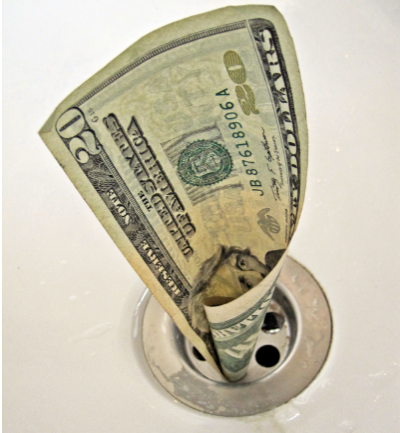7 Great Tips on Managing Your Business Cash Flow

If you run a business, you must have already come across cash flow issues and liquidity problems. Whether it was a late payment from customers or the need to finance a large project, you found yourself in the situation when your company needed a cash injection.
Apart from short-term loans and looking for quick investments, there are several ways of raising cash in your business that will not cost you a lot of interest, and sort out your cash flow issues. You can lose contracts and customers over not being able to finance projects or invest in equipment.
Find out more about these methods to manage your business finances better in the future.
#1 Implement a Solid Invoicing Strategy
When you just start up your business, you might find yourself struggling with getting the invoices sent out to your customers on time. Get started with a brand in the free invoice templates industry that can easily be recognized by your customers.
When you send out the bills late, your customers might not even remember the job you did, and will not prioritize your payment. Instead of waiting until you need the money, implement an automatic billing system. This way, your customers will get the invoice and can pay straight away.
You need to decide on the terms of the payment for your business at an early stage. You will want to stay competitive in your market, but also get paid on time. Most companies offer a payment deadline of 5-14 working days, but on some contracts, you can ask for your money on completion.
You have to assign a payment term to each job, so you get paid faster on work that you had to invest a lot of man-hours and materials in, and slower on big ongoing projects. Make sure that your system sends automatic reminders to your customers when the invoice is due and overdue.
#2 Ask for Customer Deposits
If you have to invest a lot of hours and materials into work, or you have to take out special insurance, you are right to ask for a customer deposit.
You might be afraid that you will lose the client if you ask for a deposit, but some of the customers will be expecting this anyway. When you just start-up and don’t know your client, you might want to put securities in place, in case they decide not to go through the order, leaving you with the expenses.
Asking for deposits from customers when you have to order special equipment is also justified. Clarify the terms before you start your negotiation, and get an upfront payment to cover your initial expenses.
A designer, for example, should ask for a deposit to outsource some of the work and avoid paying their contractors out of their pockets.
#3 Think about Introducing Long Term and Rolling Contracts
If you constantly struggle with financial liquidity, you might have to look at your business model and change your entire pricing structure. Instead of offering one-off packages, you might want to introduce rolling contracts that give you a set income for every month.
This method can significantly improve the cash flow in your small business, and help your customers as well. They can budget better, and your services will become more affordable if they come with a monthly installment plan. Website designers, for example, could move from a one-off design package for a smaller initial fee and a monthly maintenance cost.
Look out for the services you can offer your customers on a monthly basis and offer them a chance to upgrade for a small monthly fee. For example, if you are a building contractor, offer quarterly maintenance or checks carried out, making sure that you maximize your profit from each customer.
#4 Create a Business Cash Reserve
You might want to build up an emergency cash reserve in your business, to get ready for unexpected bills and expenses. If you have to take on extra staff on a job with a short deadline, people you employ on a temporary basis will expect to be paid faster.
However, the completion of the project might be several months down the line. Put some money aside and use it when you need it.
Sometimes customers decide between two companies based on whether or not the business can meet the deadlines and finance the project. If you have some cash reserve, you can win larger contracts and the trust of companies, and in the future, they will give you more work.
The easiest way of building up a cash reserve is to get your suppliers to give you flexible terms and asking for immediate payment on some projects. This way, you will always have some money to fall back on when you work on long-term contracts.
#5 Control Expenses
-

“Money down the drain” by Images Money is licensed under CC BY 2.0
You must learn to monitor and control your expenses to run a successful business. Keeping an eye on your business expenses is not different from making sure that your personal finances are in order.
There are several free small business financial planning software available in the cloud, and they can help you predict the cost of operation and the business income long term and short term.
You need to constantly compare the prices of your suppliers to make sure that you get the best deal. Just because you have worked with the same contractors for a few months, you might not necessarily be getting the best prices.
Some companies tend to raise their prices gradually, hoping that you will not notice the difference. Get on the case and research offers from other suppliers and contractors, looking out for better prices, terms, and quality.
Planning ahead can also help you control your expenses. Booking facilities, equipment, and signing up for an ongoing contract with a staffing agency, instead of trying to find last-minute solutions for urgent work can reduce your overhead cost and result in higher profitability.
Conduct an expense review every six months to eliminate waste. Make sure you study LEAN management principles to continuously improve productivity and reduce waste in your company.
#6 Have a Plan B
To be prepared for emergencies, you need to have a Plan B in your business. If you are in the real estate business, you might want to check out “The Essential Guide to Real Estate Commission Advances” to find out how you can release cash of your pending commissions. If you have a side business that is not performing well, or have no interest in anymore, you might decide to sell it and focus on the areas that bring in the most profits.
If you have a large office that is not fully utilized, you can rent out unused space for contractors or freelancers. If your business meeting facilities are not utilized well, you can rent them to other companies that don’t have the venue and need it from time to time.
Get creative and make sure that you have a backup plan for when your business struggles to make enough money. Think about selling and leasing back equipment to release investments and have more money to invest in future developments in your small business.
#7 Build Up Easy to Sell Stock
If your business is built around selling goods to customers or other businesses, you might want to keep your money in a stock that is easy to liquidate. You might, for example, buy some Christmas merchandise cheap in the summer and make a profit during November and December, covering the cost of other holiday purchases.
Make sure that you have a reserve stock you can sell easily to competitors or businesses. Keep an eye on the future market trends, and find out what is supposed to be hot in a few months’ time. Pre-order your merchandise to realize profits before your competitors could enter the race for customers.
Alternatively, you might want to create new services that don’t require any investment from you, other than your time. Offer ongoing consultation or reports that only take a few hours to generate on a monthly basis and give customers an option to upgrade.
The lack of healthy cash flow in your business can prevent you from improving your productivity and reputation. While most startup companies suffer from cash flow problems every now and then, there are several methods you can overcome the shortage of money and carry on doing business. Make sure that you review your supply chain and your expenses on a regular basis, and revise your business model to suit the needs of your customers and finances better.
Successful businesses are built on continuous improvement. You need to have the resources ready and backup cash to help you grab opportunities and build up a competitive advantage. Having cash to invest in new technology, getting a certification needed for a large project can have long-term benefits for your company.
Plan well and plan ahead, and you will never struggle with liquidity again. Keep an eye on your finances, have a Plan B, and try to introduce long-term contracts that give your company a solid monthly income to fall back on and cover your operational expenses.






